Author, Gambling, Writing
The Psychology of Gambling: Why We Bet, Bluff, and Occasionally Cry Over Losing Streaks
Humans have been gambling for as long as humans have been humans. Seriously—archaeologists have found evidence of dice games dating back thousands of years.
Hey friends,
Let’s talk about something that has fascinated me for years: the psychology of gambling. Now, don’t worry—I’m not going to lecture you like a college professor with charts and PowerPoint slides (although I might sneak in a metaphorical pie chart or two). No, this is going to be a little bit science, a little bit storytelling, and a lot of fun—because if there’s one thing I’ve learned from writing High Stakes, it’s that gambling is as much about the mind as it is about the cards.
Why Do We Gamble?
Humans have been gambling for as long as humans have been humans. Seriously—archaeologists have found evidence of dice games dating back thousands of years. Back then, gambling was probably less about hitting a jackpot and more about proving that you were the sharpest thinker in the tribe. Fast forward to today, and the same impulses are alive and well, just with fancier tables and more neon lights.
At its core, gambling is about risk and reward—a calculated dance between what you could gain and what you might lose. But unlike most calculated dances, the music here is chaotic and often comes with flashing lights and cocktail waitresses who seem to appear exactly when you’re about to make a risky bet. That chaos is thrilling, and our brains are wired to love it.
Neuroscience tells us that gambling triggers the release of dopamine—the same chemical that makes you feel good when you eat chocolate, fall in love, or get a like on your Instagram post. Every win, big or small, gives your brain a hit of dopamine. And even losses? Those trigger a weird kind of thrill, too—because your brain convinces you that the next hand could be the one. It’s the ultimate tease, and why some people get hooked while others can walk away unscathed.
Control vs. Compulsion
Some people are masters of the game. They know their limits, understand odds, and can step away with a grin whether they’re up or down. Others… well, let’s just say that the word “responsible” is treated like a suggestion rather than a rule.
In High Stakes, my characters are part of a card-counting team—a group of pros who know the system, calculate odds, and carefully manage risk. They’re fascinating to write about because they walk that thin line between control and chaos. Every hand they play isn’t just about the cards; it’s about psychology: reading the dealer, reading the players, and sometimes even reading themselves.
For example, one character might be perfectly calm under pressure at the table, but off the table, they might obsess over a bad hand for hours. Another might thrive on risk but know exactly when to walk away. That tension—between calculated strategy and human emotion—is what makes gambling stories so compelling.
The Gambler’s Mind
Psychologists have studied the “gambler’s mind” for decades. There are a few traits that seem to make someone more likely to gamble responsibly:
- Impulse control: Some people can say no to a bet, even if it looks irresistible.
- Self-awareness: They recognize patterns in their own behavior and know when they’re chasing losses.
- Rational thinking: They understand odds and probabilities, rather than relying on superstition.
Then there are traits that tend to push people into dangerous territory:
- Chasing losses: The urge to win back what’s lost can spiral into hours or days of compulsive play.
- Overconfidence: “I’ve got this system, I just know I’ll win.” (Famous last words.)
- Emotional betting: Letting anger, sadness, or excitement dictate decisions at the table.
In High Stakes, the tension comes not just from the cards, but from watching characters navigate these very human traits. They’re brilliant strategists, yes, but they’re also human. And as any gambler—or reader—knows, human brains are both fascinating and frustrating.
The Allure of Risk
Risk is addictive. There’s something irresistible about testing yourself against the odds, about knowing that a single hand could change everything. Casinos understand this deeply. From the way lights flash to the way the dealer’s shuffle is almost hypnotic, the environment is designed to make your brain chase excitement.
Writing about this for High Stakes was a thrill. I wanted readers to feel that rush—the tension of a hand that could make or break the team, the adrenaline when the stakes are higher than anyone expected. I wanted readers to understand that gambling isn’t just about money; it’s about human psychology. The desire to win, the fear of loss, and the occasional madness that comes from pushing your limits.
Lessons from the Table
There’s a reason stories about gambling fascinate us: they reveal a lot about ourselves. Risk-taking, strategy, patience, and human emotion all collide in a game of blackjack. And even if you never step foot in a casino, you can appreciate the psychology at play.
For writers, gamblers, or just curious readers, gambling is a metaphor for life. Every choice involves risk, every decision is a bet, and every win and loss teaches something about who we are. In High Stakes, my characters navigate these lessons in high-pressure environments, where every hand counts and the stakes aren’t just dollars—they’re trust, loyalty, and sometimes survival.
Your Turn
So, the next time you pass a blackjack table, a poker game, or even just a friendly bet with friends, think about what’s going on in your brain. Are you chasing dopamine? Testing your limits? Or just enjoying the thrill?
And if you want to see how all of this plays out in a high-pressure, edge-of-your-seat story, High Stakes is waiting for you. Follow a team of pros as they calculate odds, manage risk, and navigate the beautiful chaos of a world where psychology is as important as probability.
Because at the end of the day, whether you’re gambling in real life or following along in fiction, it’s the human mind—and all its quirks—that makes the game truly irresistible.
About Leif J. Erickson
Leif J. Erickson is a science fiction and fantasy author from a small farming community in west central Minnesota. Using his time wisely when he was a farmer, Leif developed many ideas, characters, and storylines to create over fifty unique first drafts and outlines for stories. From his start in a small town school, to college at North Dakota State University, back to his family farm, then to the bright lights of Minneapolis, Minnesota, and back to his small farming town, Leif has always had a love of writing.
When Leif isn’t writing he can be found with his wife hiking in state parks, canoeing local lakes and rivers, exploring local and regional ghost towns, experiencing museums, or simply reading or hanging out with friends and family. Leif draws on the local nature and ecology to find inspiration for his writing while he also asks what’s possible for technology and the human race, weaving them together for amazing stories that will stay with the reader for years to come. Leif looks forward to having many novel and story releases in the years to come.
You can see all of Leif’s Books here: Leif’s Amazon Author Page












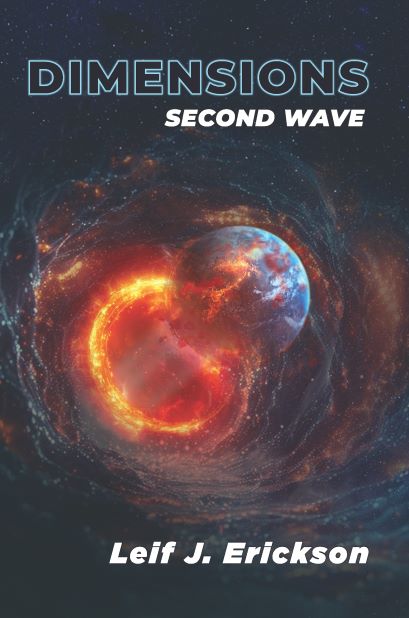
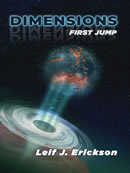
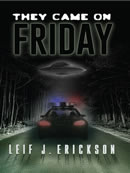
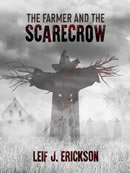
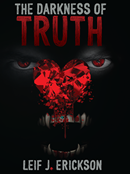
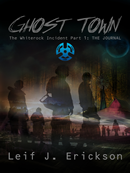
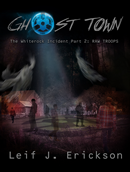
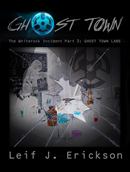
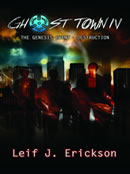
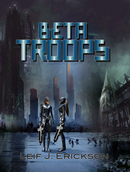
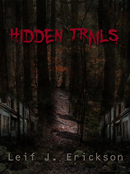
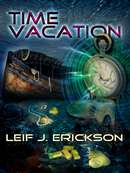
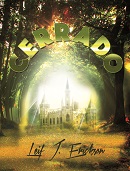




Leave a reply
You must be logged in to post a comment.